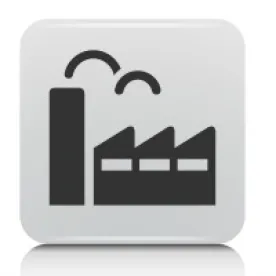On May 2, 2018, the U.S. Food and Drug Administration (FDA) filed its brief in response to Appellants Nicopure and Right to be Smoke-Free Coalition’s appeal in the lawsuit challenging aspects of the Tobacco Control Act (TCA) and the Deeming Rule now pending before the U.S. Court of Appeals for the D.C. Circuit. FDA’s brief was supported by amici briefs filed by several NGOs and public health groups (who recently dropped their motion to intervene as actual parties to the appeal). Appellants filed their reply brief on May 16, 2018. (Links to all the appeal briefs are below.)
Issues on Appeal
In their opening brief, which was supported by a number of amici, appellants argue that the Modified Risk Tobacco Product (MRTP) provision of the TCA, as well as the ban on free samples of vapor products, violate the First Amendment of the U.S. Constitution, and FDA was obligated to consider a less burdensome Premarket Tobacco Product Application (PMTA) process for vapor products while still protecting the public health. We summarize FDA’s response to the appeal, and appellants counter-arguments below.
The Premarket Tobacco Application (PMTA)
With respect to the PMTA, FDA predictably argues that, once deemed, vapor products are tobacco products subject all the requirements in the TCA, including premarket review. According to the agency, FDA has no choice but to apply the statutory requirements established by Congress, and that the decision not to tailor such requirements for vapor products was not arbitrary and capricious. Appellants, however, counter that they are not actually seeking a complete exemption from the PMTA or the “population effects” (public health) standard, but rather are only arguing FDA either was required to, or arbitrarily and capriciously failed to, tailor how the vapor industry demonstrates compliance with this standard. Such tailoring is necessary because requiring randomized, controlled trials or long-term epidemiological studies for each e-liquid and device would, by FDA’s own admission, eliminate up to 97% of manufacturers and the vast majority of products on the market – which flies in the face of the TCA’s clear intent to ensure that adults continue to have access to less harmful tobacco products.
While FDA maintains it will consider this option on a case-by-case basis, that is simply not enough when entire categories of vapor products could be effectively banned before PMTAs are even submitted. FDA must allow vapor companies on an industry-wide basis to file PMTAs that rely on information and data alternatives to satisfy the “population effects” standard without having to conduct prohibitively expensive, long-term studies for each product before submitting an application. At a minimum, it was arbitrary and capricious for FDA not to adopt this option or adequately consider it during the rulemaking.
Modified Risk Tobacco Product (MRTP) Claims
FDA argues that the requirement that the agency conduct a “premarket review” of modified risk tobacco products is not a regulation of commercial speech subject to First Amendment protection (just like FDA’s review of new drug products) and that, even if it were, the requirement is narrowly tailored to further the government’s substantial interest, as required to meet the “intermediate scrutiny” standard for government limitations on commercial speech. FDA points to Congress’s extensive findings concerning Big Tobacco’s long history of marketing light, mild and low tar cigarettes as safer than regular cigarettes, and the resulting public health consequences.
But appellants argue that modified risk designation of tobacco products does not rely on a manufacturer’s intent (unlike new drugs), and so MRTP claims are protected by the First Amendment. Moreover, FDA cites nothing in either the TCA or the administrative record showing that the agency gave any consideration, as the Administrative Procedure Act requires, to how plainly truthful claims about vapor products (e.g., “no tar,” “no combustible smoke,” “no ash,” “no diacetyl”), which are designed to help smokers move away from cigarettes, might actually be interpreted by consumers. Insisting that, because of Big Tobacco’s past indiscretions, it is the vapor industry’s duty – not the government’s – to demonstrate in the first instance that entirely truthful statements are not potentially misleading puts the cart-before-the-horse.
Free Sample Ban
FDA argues that the ban on the distribution of free tobacco product samples (1) does not implicate the First Amendment because it is effectively a price regulation focused on conduct that regulates economic activity rather than expression and that, (2) even if the prohibition were viewed as a speech restriction, it would withstand review under the intermediate scrutiny standard because it is narrowly tailored to further the government’s substantial interest in preventing youth access to tobacco products.
But according to the Appellants, FDA’s position completely ignores the underlying purpose of the commercial speech doctrine, i.e., the free flow of commercial information through advertising, which warrants First Amendment protection so consumers can make intelligent and well-informed purchasing decisions. As CASAA made clear in its amicus brief in support of the appellants, a substantial amount of information is furnished through free samples regarding e-liquid flavors and device performance that adult consumers require. Record evidence shows that when deciding whether to switch from significantly more harmful cigarettes, consumers must be able to understand how vapor products work, taste various flavors, and experience the sensation and performance levels of different devices. Samples are needed to convey this information – it is not enough for sellers to simply make representations through other channels, such as written materials or retailer demonstrations.
Moreover, requiring companies to charge a fee to sample products will limit the amount of information conveyed through sampling, whether because consumers are price sensitive, reluctant to spend money on an unfamiliar or novel product, or otherwise. Vapers engage in a routine and ongoing sampling process of multiple products as they switch from cigarettes. The act of constantly paying for each sample tested presents an unnecessary hurdle.
FDA also never acknowledges the Supreme Court’s test for determining whether the ability to distribute free samples possesses sufficient communicative elements (i.e., an intent to convey a particularized message) to bring the First Amendment into play. Rather, FDA asserts that it is only regulating conduct, turning a blind eye to the extensive record evidence that manufacturers and retailers not only offer free samples with the specific intent to convey important information to consumers, but also that consumers themselves understand testing free samples will help them make critical choices in the marketplace affecting their health and well-being.
Finally, FDA points to how cigarette manufacturers in the past failed in their efforts to limit youth access (and would distribute cigarettes at youth-oriented events like concerts), and argues that the exception in the TCA permitting free samples of smokeless tobacco in qualified-adult-only-facilities will not work for vapor products. But nowhere in FDA’s brief or the administrative record, according to appellants, is there any evidence – whether through studies, surveys, anecdotal reports, or otherwise – demonstrating that underage individuals are obtaining free samples of vapor products from venues or events only frequented by adults – e.g., vape shops, trade shows, and adult-oriented concerts. In fact, vast swaths of the vapor marketplace – primarily vape shops – are swept-up in the free sample ban when it is pure speculation and conjecture on FDA’s part to conclude that minors have easy access to samples through such channels. This approach is not permitted under the First Amendment.
Rather than a prophylactic ban on free samples, there are a number of non-speech related alternatives that FDA could implement to restrict youth access to free tobacco product samples, such as:
-
prohibiting free samples at youth-oriented events;
-
limiting free samples to adult-only, age-verified facilities where the sample must be used or consumed on-site so as to prevent removal and any access by the general public;
-
aggressively enforcing minimum age requirements; and
-
conducting education campaigns aimed at minors.
In short, FDA’s treatment of free samples is totally one-sided, without any sense of balance between the government’s interest in preventing youth access with Congress’s stated goal of allowing adults continued access to less harmful tobacco products.
Links to all briefs:
-
February 12, 2018: Appellants Nicopure and Right to be Smoke-Free file opening brief
-
February 20, 2018: Amicus briefs in support of appellants filed by: Washington Legal Foundation, NJOY, State of Iowa and CASAA
-
May 2, 2018: Appellee FDA’s brief filed
-
May 9, 2018: Amicus briefs in support of FDA filed by: Public Citizen, Yale Law School Scholars, Public Health Center, and various public health groups (American Academy of Pediatrics, American Cancer Society Cancer Action Network, American Heart Association, American Lung Association, American Thoracic Society, Campaign for Tobacco-Free Kids, and Truth Initiative)
-
May 16, 2018: Appellants’ reply brief filed
Oral arguments will likely be scheduled this fall.





 />i
/>i

